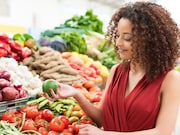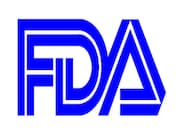Family Practice
Home Family Practice
Plant-Based Diets Inversely Linked to Risk for Type 2 Diabetes
Association was strengthened when healthy plant-based foods such as nuts and legumes were included
New ACC/AHA Guidelines Detect More Cases of Gestational Hypertension
Applying new hypertension guidelines to pregnant women increased prevalence of high blood pressure
More Screen Time Ups Risk for Depression in Adolescents
Social comparison and reinforcing spirals likely to blame
Pediatricians Can Play Role in Ensuring School Readiness
Study shows preschoolers with ADHD are more likely to have impaired school readiness
State-Level Firearm Ownership Linked to Domestic Firearm Homicide
No correlation observed for firearm ownership with nondomestic firearm homicide
Proportion of CRC Diagnoses Increased in Adults Younger Than 50
Younger adults presenting with colorectal cancer present with more advanced disease than older adults
FDA Grants First Approvals for Generic Versions of Lyrica
Generic versions approved for neuropathic pain management, fibromyalgia, partial onset seizures
Smoking Has Long-Term Impact on Peripheral Artery Disease Risk
Risk for peripheral artery disease remains 30 years after smoking cessation
Almost One in Four Adults ≥40 Takes Aspirin for CVD Prevention
Nearly half of U.S. adults aged 70 years or older without cardiovascular disease take aspirin
Nonprescription Antibiotic Use Seems Prevalent in the United States
Review shows prevalence varies from 1 to 66 percent depending on population characteristics



















